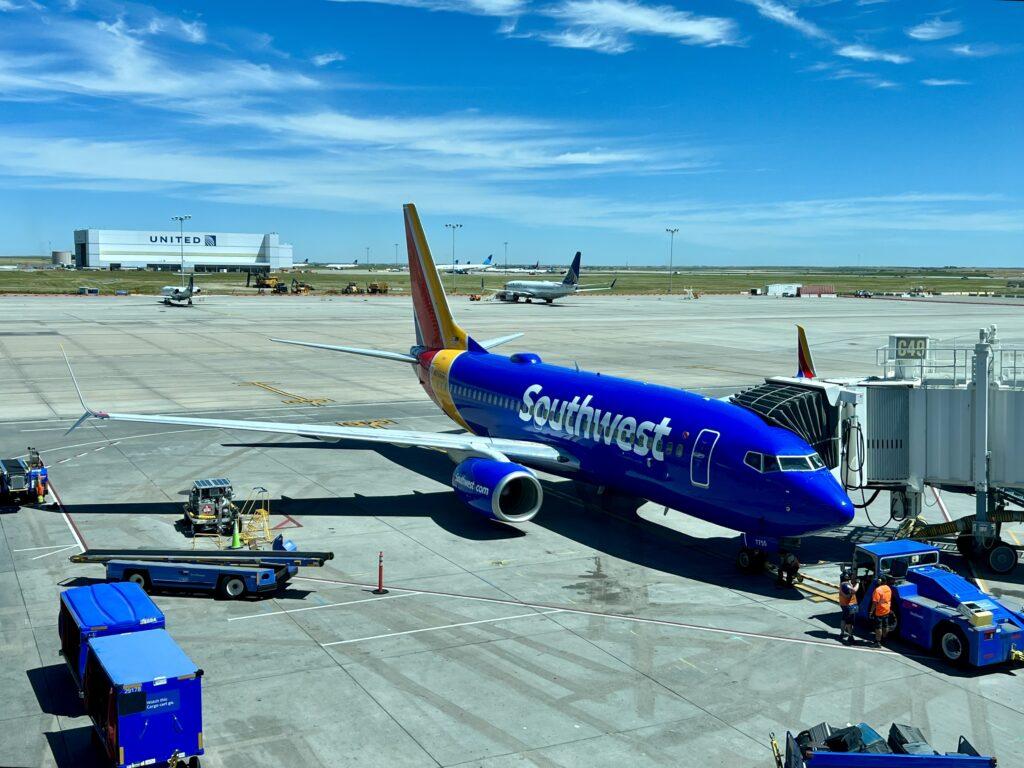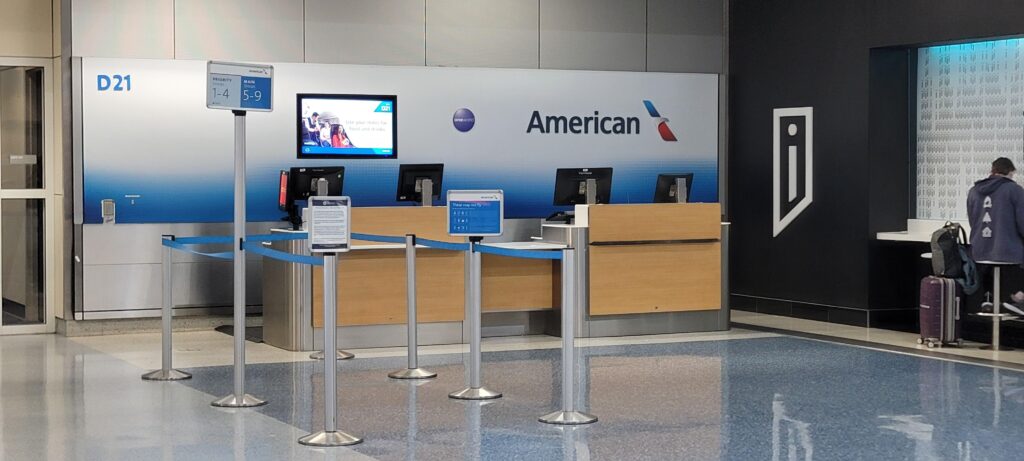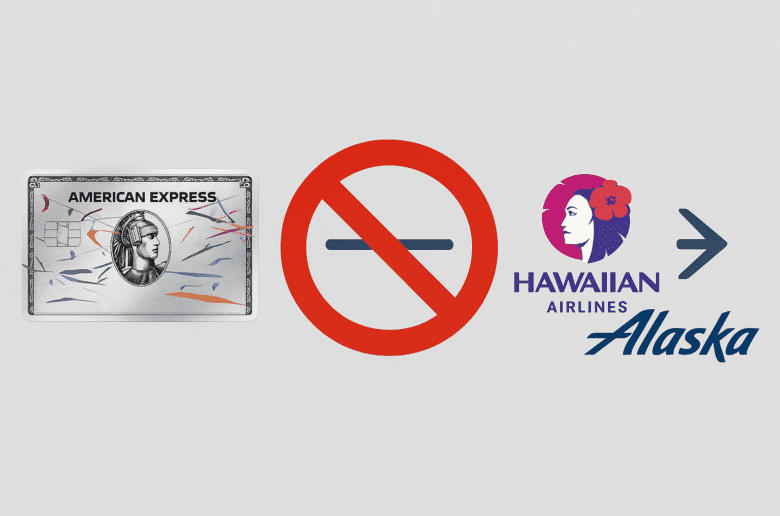Passports: How & Why – Everything You Need to Know
Traveling the world is an enriching experience that broadens horizons, fosters personal growth, and opens up new opportunities. Whether it’s exploring ancient ruins, immersing yourself in diverse cultures, or forging international business connections, global travel can be transformative. At the heart of international travel lies the indispensable passport—a document that not only identifies you as a U.S. citizen but also serves as your gateway to exploring foreign lands. In this comprehensive guide, we’ll delve into the intricacies of passports: their history, importance, how to apply or renew, and the advancements shaping their future. By understanding the nuances of passports, you can navigate international borders with confidence and ease.
The Importance of Passports

Passports are critical travel documents required for international travel, serving as the only universally acceptable form of identification recognized by governments worldwide. They are essential for entering, leaving, or re-entering a country and are often required for smooth passage through customs, immigration checks, and for boarding international flights. A passport holds personal details such as your full name, date of birth, place of birth, photograph, and a unique serial number crucial for identity verification. It also acts as proof of citizenship, which is vital for travelers and ensures that children traveling with parents can cross borders legally and safely.
Beyond the basics, passports serve as a key to unlocking global opportunities. For instance, The Role of Passports in International Employment Opportunities highlights how having a passport enables individuals to pursue careers abroad, participate in international conferences, and engage in global networking. Additionally, a passport provides access to consular assistance abroad in case of emergencies, offering a safety net for travelers. In some cases, simply possessing a passport can expedite processes such as obtaining visas or other travel documents.
Having a passport offers numerous benefits, including the ability to travel abroad and access international work assignments. It serves as a strong legal ID, aids in adopting foreign children, offers peace of mind during emergencies, and facilitates new job paperwork. Even if you don’t have immediate travel plans, possessing a passport ensures you’re ready for unexpected opportunities or emergencies that may require international travel.
Moreover, passports provide child protection in custody cases, streamline visa processes, and might be needed for domestic flights if state IDs do not meet federal standards. For travelers to neighboring countries like Canada and Mexico, passports are required unless you have an enhanced driver’s license or other approved travel documents. In essence, a passport is not just a travel document; it’s a powerful tool that affirms your identity and citizenship globally.
A Brief History of Passports

The concept of a standardized passport emerged post-World War I, endorsed by the League of Nations to manage global immigration more effectively. Before this standardization, identification documents were not globally recognized, making cross-border travel easier but less regulated. In medieval times, documents similar to passports were issued to travelers by local authorities, but these were not standardized or universally accepted. The Evolution of International Passport Regulations Post World War I illustrates how passports became essential tools for governments to control the movement of people across borders.
Passports have since become symbols of privilege or lack thereof, with some nations even selling citizenship through investment programs. This practice underscores the intersection of wealth, nationality, and mobility rights. Modern passports, now technologically advanced, reflect the fluid and sometimes arbitrary nature of nationality, impacting individuals’ freedom of movement based on their origin. For example, citizens of countries with strong diplomatic relations often enjoy visa-free access to more destinations, whereas others face significant travel restrictions.
In the United States, passports have evolved significantly since the first ones were issued in 1775. Initially handwritten and signed by the Secretary of State, these documents have transformed over time. Machine-readable versions were introduced in 1981 to expedite processing and reduce errors, and by 2006, biometric booklets became standard, incorporating electronic chips that store personal data including a digital photograph and fingerprints. Interestingly, passports weren’t always mandatory; it wasn’t until 1941, during World War II, that they became a requirement for international travel due to security concerns.
Today, U.S. passports are not only a means of identification but also incorporate advanced security features to prevent fraud and counterfeiting. The shift towards biometric passports, equipped with RFID chips and other advanced technologies, is part of a global movement towards enhancing security and streamlining border control processes. The Impact of Biometric Technology on Modern Passports discusses how these advancements have improved the integrity of travel documents while raising new considerations around privacy and data protection.
This evolution highlights how passports have transformed from mere travel documents to sophisticated instruments embedded with security features. They have become essential in a world where identity verification and border security are paramount, underscoring their role in both facilitating and regulating international movement. As globalization continues to advance, the passport remains at the forefront of balancing the ease of travel with national security interests.
How to Obtain a U.S. Passport

Applying for a new U.S. passport is a straightforward process, but it requires attention to detail to ensure a smooth experience. To apply, you must be a U.S. citizen or qualifying non-citizen national. First-time applicants or those unable to renew must apply in person at a passport acceptance facility, such as designated Post Offices, some libraries, and local government offices. It’s important to verify the acceptance facility’s hours and whether an appointment is needed before visiting.
Required items include the completed Form DS-11, which can be filled out online and printed, or obtained in person at the acceptance facility. You will need proof of U.S. citizenship, such as a certified birth certificate or naturalization certificate, and photo identification like a driver’s license or military ID. Photocopies of your citizenship proof and ID are also necessary; these copies must meet specific criteria regarding size and clarity. A recent passport photo that meets specific requirements—taken within the last six months, in color, with a clear image of your face against a plain white or off-white background—is essential. You can have your photo taken at various retail locations or Requirements for U.S. Passport Photos and Where to Get Them provides detailed guidance.
The applicable passport fee varies depending on the type of passport (book, card, or both) and the processing speed. It’s crucial to ensure all documents are original and current to avoid delays. Incomplete applications or incorrect fees can result in processing delays, so meticulously review the checklist provided in the application instructions.
Processing times can vary throughout the year and are subject to change. Currently, routine service may take up to 11 weeks as of October 2023. For those with imminent travel plans, expedited services are available for an additional fee, reducing processing time to approximately 7 weeks. In urgent situations requiring travel within 14 days, individuals can schedule an appointment at a regional passport agency by providing proof of immediate travel, such as a flight itinerary. For life-or-death emergencies, even faster processing is possible with appropriate documentation.
After submitting your application, you can check your application status online through the U.S. Department of State’s website. You’ll need to wait at least two weeks after applying before your status will be available. If you need assistance at any point, contact the National Passport Information Center for support via phone or email. To avoid common pitfalls, Tips to Avoid Delays in Your Passport Application Process offers valuable advice on ensuring a hassle-free application experience.
Remember, preparation is key—double-check all information and documents to ensure your application is processed without issues. By being thorough and attentive, you can secure your passport efficiently and begin planning your international travels.
Renewing or Replacing Your U.S. Passport

Renewing your U.S. passport is essential to ensure uninterrupted international travel. Fortunately, the renewal process is generally simpler than applying for a new passport. You can renew your passport by mail or online (when available) if you meet specific criteria: your passport is undamaged and in your possession, it was issued when you were 16 or older, it was issued within the last 15 years, and it’s issued in your current legal name or you can legally document your name change. If your passport doesn’t meet these criteria, you must apply for a new passport in person.
To renew by mail, you need to complete Form DS-82, which can be downloaded from the U.S. Department of State’s website. Include your most recent passport, a recent passport photo that meets the standard requirements, and the applicable fee paid by check or money order. It’s important to use traceable mail services when sending your application to ensure it reaches the processing center safely. Detailed instructions on proper submission can be found in Step-by-Step Guide to Renewing Your U.S. Passport by Mail .
Processing can take up to 11 weeks, so it’s advisable to renew early, especially if you have upcoming travel plans. Many travelers are unaware that some countries require passports to be valid for at least six months beyond the dates of travel, so renewing in advance can prevent unexpected complications. Expedited service is available for an additional fee if you need your passport sooner, generally reducing processing time to about 7 weeks. For even faster service, consider using a passport expediting service, but be cautious and ensure any third-party agencies are reputable.
If your passport is lost or stolen, report it immediately to the U.S. State Department to protect your identity and prevent fraudulent use. You can report it online, by phone, or by mail using Form DS-64. After reporting, you must apply for a new passport in person using Form DS-11. For those abroad, contact the nearest U.S. embassy or consulate for assistance. Ensuring prompt action helps safeguard your personal information and facilitates the issuance of a replacement passport. For more information, consult What to Do if Your Passport is Lost or Stolen While Traveling Abroad .
Always check the passport validity rules for your travel destinations. Some countries, such as China and Russia, have strict entry requirements regarding passport validity and remaining blank pages for visas. Additionally, make sure the name on your passport matches your travel documents to prevent any issues during your journey. If you’ve recently changed your name due to marriage or other legal reasons, ensure you update your passport accordingly.
The Next Generation Passport (NGP)

The U.S. Department of State introduced the Next Generation Passport (NGP) in 2021, enhancing the security and efficiency of U.S. passports with cutting-edge technology. The NGP incorporates features like a polycarbonate data page, similar to that used in U.S. Green Cards and driver’s licenses, providing greater durability and resistance to tampering. The passport includes an RFID (Radio Frequency Identification) chip that securely stores biographic information and a digital photograph, enhancing identity verification processes at border checkpoints. Laser-engraved personal details and images further combat identity theft and counterfeiting by making alterations extremely difficult.
The NGP also boasts new artwork showcasing iconic U.S. imagery, more intricate designs, and updated security features embedded within the pages. Alphanumeric passport numbers and a unique QR code on the data page improve processing efficiency and security. The redesigned page structure not only boosts the passport’s resilience to wear and tear but also enhances the integrity of the document through complex printing techniques and advanced ink technologies. For a detailed overview of these features, refer to Understanding the Security Enhancements of the Next Generation Passport .
While valid e-passports issued before the NGP remain acceptable for international travel, the issuance of NGPs depends on the processing facility’s technology, so applicants may receive different passport versions until the transition is complete. It’s important to note that the introduction of the NGP does not require any immediate action from current passport holders; existing passports remain valid until their expiration date.
This modernization aligns with global trends towards more secure travel documents and reflects the U.S. commitment to safeguarding its citizens’ identities. The NGP’s advanced features facilitate smoother passage through international borders, as enhanced security measures are increasingly adopted worldwide. Travelers should familiarize themselves with these new passports to understand the benefits and any new protocols associated with their use. The Global Adoption of Biometric Passports and Its Impact on Travel explores how such advancements are shaping the future of international travel.
Passport FAQs: What You Need to Know

Applying for and using a U.S. passport can raise many questions. Here are some frequently asked questions to help navigate the process.
“How long is a U.S. passport valid?” For adults aged 16 and over, passports are valid for 10 years. For minors under 16, passports are valid for 5 years. It’s important to note that some countries require your passport to be valid for at least six months beyond your departure date, known as the “six-month validity rule”. This requirement varies by country, so always check the entry requirements before you travel. For more details, see Understanding Passport Validity Requirements for International Travel .
“Can I travel if my passport is about to expire?” While you can travel domestically with a passport nearing expiration, international travel may be restricted. Many countries enforce the six-month validity rule, so it’s advisable to renew your passport well before it expires to avoid travel disruptions. If your passport is due to expire within a year, consider renewing it to ensure uninterrupted travel plans.
“What should I do if I need my passport urgently?” If you require your passport within seven weeks, you can request expedited service for an additional fee. For travel within 14 days, schedule an appointment at a regional passport agency and provide proof of imminent travel. In life-or-death emergencies, immediate assistance is available, but documentation is required to substantiate the emergency. For guidance, refer to How to Expedite Your Passport Application in Case of Emergency .
“How can I check the status of my passport application?” You can check your application status online through the U.S. Department of State’s website. You’ll need your last name, date of birth, and the last four digits of your Social Security Number. Processing times can vary, so regular status checks can provide peace of mind as you await your passport. If you applied more than two weeks ago and your status isn’t available, you may contact the National Passport Information Center for assistance.
“Do children need a passport to travel internationally?” Yes, all U.S. citizens, including infants and minors, require a passport when traveling internationally by air. For land or sea travel to certain countries, different requirements may apply. The application process for minors involves additional steps to prevent child abduction, including providing parental consent and documentation. For comprehensive information, see Applying for a Child’s U.S. Passport – Parental Consent Requirements .
“Can I include visas and entry stamps in my passport card?” No, the U.S. passport card is a limited-use travel document designed for land border crossings and sea ports of entry between the United States, Canada, Mexico, the Caribbean, and Bermuda. It cannot be used for international air travel and does not have visa pages for stamps. If you plan to travel internationally by air or require visas, you’ll need a traditional passport book.
“What if I need extra pages in my passport?” As of January 2016, the U.S. Department of State no longer adds visa pages to existing passports. If you require additional pages due to frequent travel, you must renew your passport. When applying for a new passport, you can opt for a 52-page book at no extra cost, providing more space for stamps and visas. For frequent travelers, Options for Frequent Travelers Needing More Passport Pages offers useful advice.
The Future of Passports: Digital Transformation

The traditional paper passport is undergoing a significant transformation as countries explore digital systems using facial recognition technologies and smartphones. This technological shift aims to make travel more seamless and efficient, potentially making traditional passports obsolete. Trials are already underway in countries like Finland, where digital passports are being tested for international travel between Finland and the United Kingdom. Canada and Singapore are also exploring similar initiatives, signaling a global move towards digital identities.
The International Civil Aviation Organization’s Digital Travel Credential (DTC) initiative is at the forefront of this change, aiming to create a standardized, secure digital identity verification system. The DTC would store travelers’ passport information electronically on a secure chip or in a smartphone, allowing for faster and more secure processing at airports and border crossings. This innovation promises a future of frictionless travel, reducing wait times and enhancing security measures. For travelers, this means more convenience and potentially a reduction in lost or stolen passports. To understand how this works, Exploring the International Civil Aviation Organization’s Digital Travel Credential Program provides in-depth insights.
However, this shift raises privacy concerns due to data security and increased surveillance. Storing personal biometric data electronically requires robust safeguards against cyber threats and unauthorized access. There’s also the challenge of establishing international data handling standards and ensuring fairness in AI systems used for identity verification. Privacy advocates emphasize the need for transparency in how data is collected, stored, and shared. Governments and organizations must balance security enhancements with the protection of individual rights. The Privacy Implications of Biometric Data in Digital Passports discusses these concerns in detail.
As digital passports become more prevalent, travelers will need to adapt to new technologies and protocols. This includes understanding how to use digital identities, ensuring their devices are compatible and secure, and staying informed about the policies of different countries. Airports and airlines will also need to upgrade their infrastructure to accommodate these changes. Staying informed about these developments is crucial for ensuring a smooth transition and understanding the implications for personal privacy and data security. The evolution of passports reflects broader trends in international travel, where technology plays an increasingly vital role in shaping the traveler experience.
The future may also include the use of blockchain technology to secure personal data, decentralized identity systems, and more personalized travel experiences facilitated by technology. As we move into this new era, the Future Trends in Travel Documentation and Border Security offers a look into what travelers can expect in the coming decades.
Final Thoughts

Passports are more than just travel documents; they are key instruments of identity, freedom, and security in our globalized world. They not only facilitate our movement across borders but also represent our citizenship and national identity. Understanding how to obtain, renew, and properly use your passport is essential for any traveler. With technological advancements like the Next Generation Passport and future digital transformations on the horizon, staying informed is more important than ever.
Whether you’re planning an international adventure, preparing for unexpected opportunities, or simply ensuring your identification documents are up to date, your passport is a critical asset. By following the guidelines outlined in this article and utilizing the resources provided by the U.S. Department of State, you can navigate the passport process with confidence and embark on your global journeys with peace of mind. Remember that the world is becoming increasingly interconnected, and tools like your passport are gateways to new experiences, cultures, and opportunities.
Follow us back to BoardingArea for more insights and updates on travel documentation and international travel trends.































